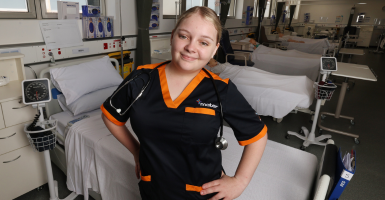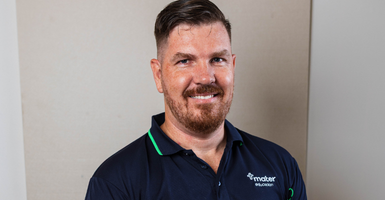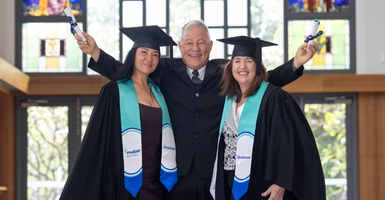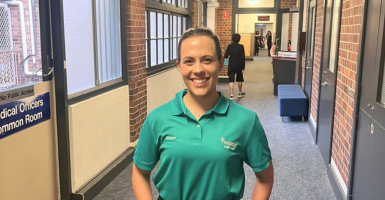Mater Education leads Australian first surgery simulation
Before Mater and Vanderbilt University Hospital teams performed Australia’s first in-utero spinal surgery on a 24 week-old in-utero baby with spina bifida, the teams ran an Australian first simulation to ensure any challenges were identified.
Prenatal surgery for spina bifida was pioneered by a team at Vanderbilt University Hospital in the USA in 1997 and a team from Vanderbilt travelled to Mater Mothers’ Hospital Brisbane to assist in the first Australian case.
With combined teams numbering 40 people, it was essential the teams from Vanderbilt and Mater participate in a simulated surgery in theatre prior to the actual surgery taking place.
Despite pioneering the surgery, Vanderbilt University Hospital had never been involved in a simulation of the surgery where two teams had to work together for the first time.
Mater Education’s Education Programs Manager Melanie Barlow who coordinated the simulation said the session was important to identify any communication gaps between the two teams – especially given the large number of people in the room at one time.
“Our idea was to step through the simulation once, find out where the kinks lie, then re-simulate it,” Ms Barlow said.
“We needed to ensure we had contingencies in place if there were any issues with the mother or baby during surgery.
“We also identified differences between the Australian and US surgical instruments and their names and then ensured that the teams were familiar with the alternative surgical terminology,” she said.
Mater’s team leader, Director of Maternal Fetal Medicine Dr Glenn Gardener, said the simulation was a fantastic experience for the two teams to not only bond but to ensure that any differences would be clarified before the actual surgery.
“In the simulation we actually used a mannequin as if it was a real case. We had lots of discussion and shared lots of things,” Dr Gardener said.
“We were all confident at the end of the simulation that we work well together; we’re all on the same page and know exactly what we are doing.
“At the end I breathed a sigh of relief because I knew this was going to be a safe procedure for our patients,” Dr Gardener said.
Vanderbilt Professor of Neurological Surgery Dr Jay Wellon said the two teams integrated well.
“Within 24 hours arriving in Brisbane we had our Australian medical license and had done a five and a half hour simulation,” Dr Wellon said.
“The Mater team is not only imminently ready but they have performed the procedure. It was an amazing opportunity to work with the Mater team.”
While this surgery isn’t a cure for spina bifida it does significantly improve the outcomes for babies with spina bifida.
Spina Bifida is a condition where the lower part of a baby’s spine is open and it affects 1 in 2000 pregnancies in Australia. Families often discover the diagnosis of spina bifida at their 18-20 week ultrasound scan and to date, Australian parents have had to wait until the baby is born to perform surgery or to travel overseas.
Image: Mater and Vanderbilt University Hospital teams simulating Australia's first in-utero spinal surgery.



